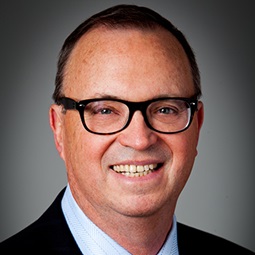Glenn West considers himself a private equity lawyer. But over his 43-year career, he’s had to wear many hats, advising on everything from real estate and oil and gas to sports deals (the sale of the Texas Rangers) to restructuring (Lehman Brothers and Blockbuster). “When you’re in this business, you’re in a way sort of the last Renaissance lawyers,” he told the Dallas Morning News in 2010. “You have to know a little bit about everything.”

Now he’s trying on a new hat as of this year — retirement— after a career spent mostly at Weil, Gotshal & Manges in Dallas.
Born in Mineral Wells, Texas, to parents that included an air force father, West started the first grade in Casablanca and graduated from high school at Lakenheath Air Force Base in England. He earned a bachelor’s degree in government from Tarleton State University in Stephenville and a law degree from Texas Tech University in Lubbock. After spending his early years at Jackson Walker in Dallas, West was one of six lawyers to open the Dallas office of New York-based Weil in 1987. He was also the office’s managing partner from 1995 until 2014 and a member of the firm-wide management committee. He responded to questions via email from The Texas Lawbook about his career. The Q&A has been edited for length and clarity.
How has the M&A practice changed during your career?
The primary changes have been technological. When I started, there were no emails and no word processors, cutting and pasting involved scotch tape and scissors and redlining involved a ruler and a red pen. We also had the luxury of 24 hours after submitting our comments on a document for our FedEx to arrive at the other side and for them to revise and FedEx documents back to us. We also flew to New York to close the deal, with a team of paralegals and assistants; and our clients had to physically sign hundreds of documents by hand. Today deals are largely done through an exchange of emails. And sign off on changes is now expected in a matter of minutes, not 24 hours.
How has the Texas legal market evolved, too?
The Texas legal market was primarily a local Texas market when I started my career. There were no out-of-state firms of any significance. And we did deals that were largely based in Texas. The Texas market then — as now — was booming, but there was not a lot of interest among out-of-state firms to physically locate here. When I joined Weil, it was one of the first New York-based firms to open in Texas. Today there are many here and many more coming.
Do you remember your first deal? What did it involve?
Even though I spent the majority of my career as a private equity lawyer, I actually began as a real estate attorney at Jackson Walker. So my very first deal was a shopping center development deal in Denton. It was a terrific learning experience that helped set the stage for my later career in private equity. But along the way, I also did oil and gas, acquisition finance and restructuring.
Can you estimate the number of deals and deal value you handled during your career?
It’s hard to put a precise estimate on it. Suffice it to say, billions and billions of dollars in deal value and hundreds of deals.
What have been your five largest/most important transactions?
I have been privileged to have been involved in a number of high-profile projects. Among the most memorable are: AMR Corp’s $18 billion merger with US Airways Group Inc. in 2013; LIN Media’s $2.6 billion merger with Media General Inc. in 2014; WPX Energy Inc.’s $2.5 billion acquisition of Felix Energy in 2019; the sale of the Texas Rangers Baseball Club to Rangers Baseball Express in 2010; and the sale of the Dallas Stars Hockey Club to an entity controlled by Tom Gagliardi in 2021.
What’s been your best day at Weil? And your worst?
My best day at Weil has been every day. I joined Weil for the challenge of always doing something that stretched me beyond simply doing the same thing that I had done the day before. That expectation has been realized and I can’t really think of a worst day.
What is the last deal you worked on?
I continued advising and assisting with difficult, challenging, solution-oriented issues all the way up to my last day.
What’s next?
I plan to teach practice skills-related classes for law schools and continue to write and speak on private equity topics at bar-related CLE programs. I also expect to be involved in some board consulting projects.
